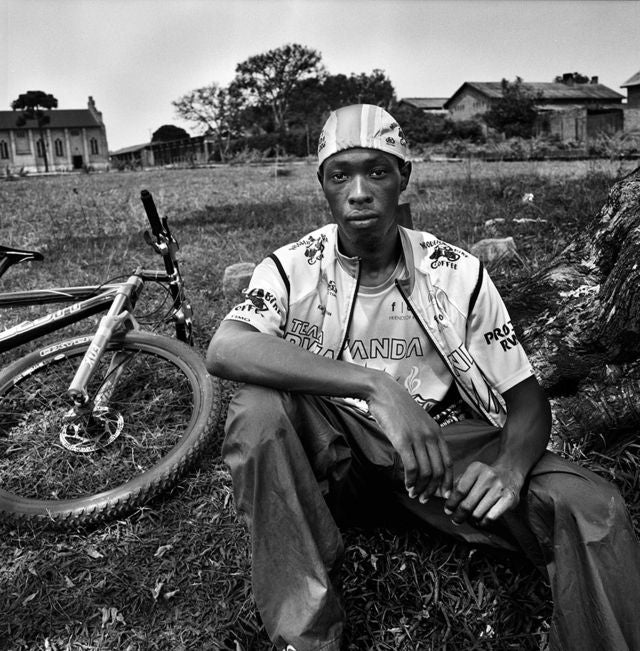
Adrien Niyonshuti. Photo:
The of Rwandan cyclist Adrien Niyonshuti suggest a world class athlete: 139 pounds, a VO2 max of around 75ml/kg/min (), a haematocrit in the 46-49 percent range, 5.5 percent body fat, and the ability to sustain a power output of more than five watts/kg for several hours. Those attributes will have nothing to do with your desire to cheer for him during the cross-country mountain bike race in London.
The cyclist, who qualified for the Olympic mountain bike competition after a fourth place finish in the Mountain Bike Continental Championships in Stellenbosch, South Africa, last February, survived the Rwandan genocide in which six of his brothers died. The Team Rwandan rider has also endured the deaths of numerous friends, including an orphan he befriended at a refugee camp who fell under a car as they rode bikes as adults together. Niyonshuti was helped along the way by bike builder Tom Ritchey and cyclist Jock Boyer, who worked to develop a national cycling team in Rwanda. Niyonshuti rose to fame when he won the , and after .
You can read more about Niyonshuti's journey in this great profile from April 2011. Here's a sample:
Adrien found himself on the mother of all learning curves. In George, he laid eyes on the sea for the first time. In Cape Town, he visited the aquarium and marvelled that all those creatures actually lived in that sea. In California, he saw his first train, and his first quite-a-lot-of-other-things too. He revelled in hotel-room luxury: hot water on tap and beds so opulent that he sometimes preferred to sleep on the floor rather than disturb the extravagance. And he got stronger. Much stronger. In 2008, he finished the Cape Epic in 26th position (riding with Nathan), and then returned home to win the Tour of Rwanda. With his rider in that kind of form, Jock put Adrien straight back on the plane to South Africa, to the UCI centre in Potch to be precise, and placed a call to Ryder informing him that he had unearthed a gem.
The rest of 2008 was a blur. When Ryder offered Adrien a contract—Team Rwanda’s first professional contract!—Jock would have broken out the champagne … except he’d only ever had two beers in his life. Adrien’s trademark grin stretched from ear to ear. Now he would have a salary to send back to his parents so that they could install electricity and running water, and lay a cement floor in their modest homestead. Perhaps even better, he’d be in a position to pass on training tips and old racing kit to Godfrey, the genocide orphan he loved like a brother and who was the rising star of Team Rwanda back home. All the pieces of the jigsaw were falling into place.
Then the nightmares of the past—or was that the future?—returned.
For more about cycling in Rwanda, read “Positive Spin,” by Jason Gay, and “,” by Philip Gourevitch.
https://youtube.com/watch?v=mHlvLWyodtY
H/T:
–Joe Spring